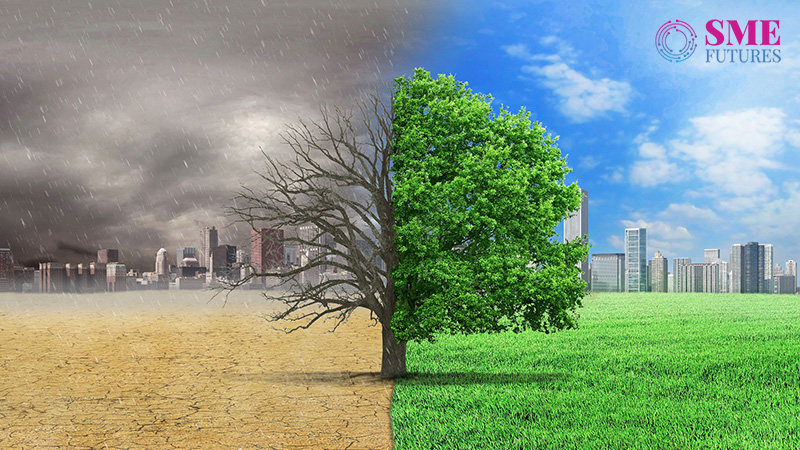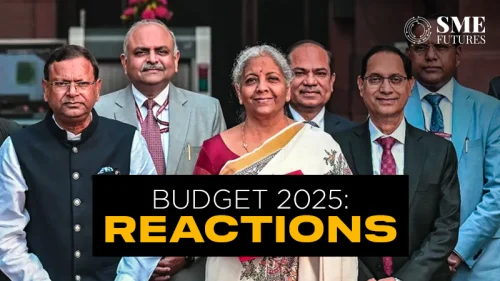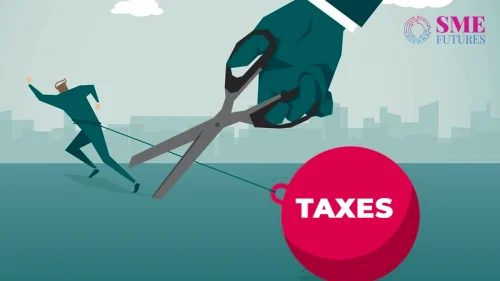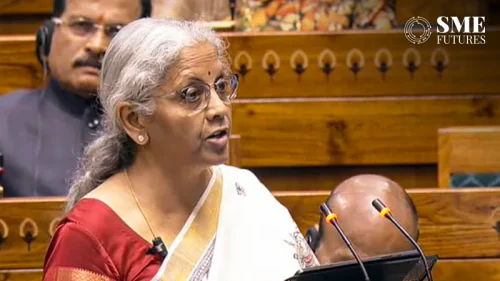As the theme suggests, this year’s World Earth Day 2022 is being mostly celebrated by businesses around the world, who are taking sustainable initiatives or steps to reduce global climate change.
The corporate sector encompasses a large portion of the world; from industrial buildings on the ground to sky-high office buildings, it has contributed significantly to climate change.
Speaking on the grave matter Finance Minister, Nirmala Sitharaman spoke at the meeting of the International Monetary and Financial Committee the IMF in Washington D.C.
She said, “The importance of the multilateral approach to combat climate change and the importance of transfer of climate finance and low-cost technologies from developed to developing countries,”
Today acknowledging the imperativeness of sustainable goals, many businesses are playing their respective roles in mitigating global climate change by implementing thoughtful sustainable initiatives, in India as well.
Karnataka based Akshayakalpa Organic, an organic dairy enterprise, has taken one such initiative, ‘#GiveBackTheMilkPack,’ a recycling initiative on the occasion of World Earth Day.
More than 34 lakh tonnes of plastic waste were generated in 2019-20, according to the Minister of State for Environment. Discarded milk packs, which harm the environment, are a significant contributor to this plastic waste.
Akshayakalpa collects waste and collaborates with recycling companies to separate different types of plastic waste and recycle it into granules, which are then used as secondary raw materials to make new products like baskets and goods. It invites schools, as well as other dairy producers and suppliers, to join in on this revolution. Akshayakalpa will launch this initiative in three cities: Bengaluru, Hyderabad, and Chennai.
“Disposal of plastic packets receives little to no attention and it adds to the extent of the problem,” says Shashi Kumar, Founder and CEO of Akshayakalpa Organic. They are now providing milk in paperboards from now, which are 92 per cent biodegradable and 100 per cent recyclable carton packs.
“This initiative is small but crucial towards bringing about awareness on the impact of plastic waste and invites our consumers to participate in our goal of making a difference in a way that matters,” he adds.
Similarly, big corporates are continuously adding ESG goals to their policies.
For instance, the Indian Hotels Company (IHCL), is already working on its sustainability commitments for the year 2030 under Paathya—a company initiative. The steps will include 100 per cent elimination of single-use plastic across all its hotels, ensuring 100 per cent of wastewater is reused and that all business meetings and conferences go green with the introduction of Innergise – Green Meetings.
This Earth Day, IHCL marks the occasion by having 77 of its EarthCheck certified IHCL hotels have generated significant savings since 2008. Moreover, it has partnered with Tata Power to provide EV charging stations across hotels.
Tech corporates are also following sustainable goals.
BMC Software is taking a step further with a whole month of activities for its inaugural Climate Action Month, #GoGreenwithBMC.
“At BMC, our corporate social responsibility (CSR) work is rooted in helping to solve the issues raised in the UN SDGs. We do this while also fostering innovation to help businesses and ourselves evolve to an Autonomous Digital Enterprise that includes everyone,” reads BMC Blogs.
BMC has joined the Business Ambition for the 1.5° C campaign and is dedicated to reaching net-zero value chain emissions no later than 2030. It is also committed to recycling its equipment whenever possible.
On the other hand, corporate commute which is one of the factors responsible for climate change is another issue.
The corporate commute is a major contributor to climate change, and according to a recent International Workplace Group (IWG) report, more than 76 per cent of employees worldwide recognise that commuting less is an important step that can help combat the climate crisis.
Even though this factor played a minor role during the pandemic-induced lockdown periods.
However, according to a new IEA analysis, global energy-related carbon dioxide emissions increased by 6 per cent in 2021 to 36.3 billion tonnes, their highest level ever, as the world economy recovered strongly from the pandemic and relied heavily on coal to power that growth.











